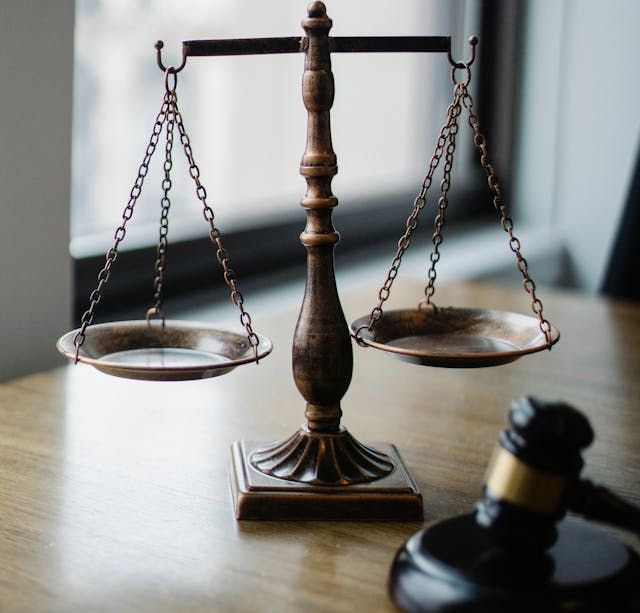In the realm of Illinois, definite edicts exist with the express purpose to deter stalking while extending a shield of legality for those who might be or already are victims. The labyrinthine nature of these anti-stalking laws in this jurisdiction can often pose an intellectual challenge, due in part to the manifold classifications of stalking as delineated by judicial decree. Yet such complexity does not diminish even remotely from the severity and seriousness attributed to this crime, nor does it lessen the stringent legal repercussions awaiting transgressors.
It behooves denizens residing within Illinois’ boundaries to comprehend fully their state’s all-encompassing definition of stalking, which spans unwarranted physical pursuit right down to intricate details associated with cyberbullying under their own legal framework. The wider and deeper one’s understanding is regarding these anti-stalking statutes within Illinois’ dominion, greater will be their preparedness in identifying telltale signs indicative of stalking behavior, responding adeptly when confronted by such situations and invoking law enforcement agencies for protection. This knowledge also serves as a stark deterrent for would-be perpetrators alerting them about extensive legal ramifications that could stem from their actions.
The Definition and Categories of Stalking in Illinois Law
In the elaborate labyrinth of the Illinois Compiled Statutes, stalking is characterized as deeds where an individual, devoid of lawful justification and with conscious knowledge, on no less than two separate instances tails or surveils another soul. This also extends to putting that individual in a state of reasonable fear for impending or future harm. Notably, this law spreads its wings over scenarios where one interferes with, monitors, observes, intimidates or communicates regarding another being. The intent harbored by the person under scrutiny can be highly subjective and comes into stark focus when adjudicating a case as stalking.
The legal intricacies around stalking within Illinois jurisdiction are further bifurcated into two primary compartments: Stalking and Aggravated Stalking. Standard Stalking situates itself in the category of Class 4 felony under Illinois legislation while Aggravated Stalking decisively answers the common query – “Is harassment considered a felony in Illinois?” This variant receives classification as Class 3 felony attracting more stringent repercussions including extended time behind bars or heftier fines. It encapsulates situations where there was blatant disregard for protective orders during the act of stalking; incidents involving physical harm; cases where those stalked were minors below 18 years and their tormentor aged five years beyond them. Such compartmentalization ensures penalties fitting to unique circumstances surrounding severity and context specific to each case.
The Legal Consequences of Stalking Offenses in Illinois

In the domain of Illinois, stalking is not a light matter to be dismissed. Its legal status as a serious crime calls forth penalties that are harsh in their execution, notably significant in their extent. The weighty consequences for such offenses can oscillate widely, primarily hinging on variables including but not limited to the intensity of the transgression, circumstantial proof at hand, any past criminal footprints left by the offender and finally, how much damage or emotional turmoil has been thrust upon the victim. These penalties bear sufficient severity to function both as a dissuasive measure and as recompense for egregious intrusions into personal space and confidentiality.
An individual committing stalking for the first time in Illinois will commonly face charges equivalent to a Class 4 felony. This scale of offense could potentially warrant an incarceration period spanning from one year up to three years coupled with substantial financial penalties. However, if this unlawful act becomes habitual or recurring it escalates swiftly into what’s legally termed as Class 3 felony which could pave way for confinement lasting two years extending up until five years. In instances where protective measures were already established around the victim or if aggravated stalking takes place; it escalates further into being categorized under Class 2 felony leading towards potential prison tenure stretching between three and seven years.
The aforementioned elucidation clearly portrays how deeply embedded these anti-stalking laws are within Illinois’ judicial system aimed at relentlessly combating such antisocial behavior thereby creating safer spaces shielding potential victims.
The Role of Law Enforcement in Addressing Stalking Incidents
In the realm of Illinois, law enforcement entities hold a crucial position in addressing incidents of stalking – instances regarded with profound seriousness considering their intrusive and potentially perilous character. These agencies are steadfastly situated at the spearhead of response, tasked with probing into complaints regarding this crime, accumulating pertinent evidence, and rendering much-needed protection to those victimized immediately. Prudent procedures are implemented to ascertain victims’ sensitive treatment while ensuring their safety as inquiries continue.
One key facet of law enforcement’s strategy when dealing with such unsettling events is its engagement involving other juridical and societal service bodies. Once an incident report is lodged, it becomes incumbent upon these agencies to establish a connection with legal authorities for effective prosecution of the case which helps in making certain that wrongdoers face justice. Moreover, they cooperate closely with organizations offering services dedicated to supporting victims by paving way for them towards resources like counseling services during crises and advocacy from a legal perspective. This intricate approach is designed around comprehensive support for victims; targeting deterrence against future occurrences akin to stalking.
- Law enforcement agencies in Illinois play a pivotal role in addressing stalking incidents, given their invasive and potentially dangerous nature.
- These entities are at the forefront of response, investigating complaints related to this crime, gathering relevant evidence and providing immediate protection to victims.
- Careful procedures are put into place to ensure sensitive treatment of victims while maintaining their safety during ongoing investigations.
Another vital aspect of law enforcement’s approach towards these disturbing events involves collaboration with other legal and social service bodies.
- Upon receiving an incident report, it becomes mandatory for these agencies to liaise with legal authorities for effective prosecution of the case. This ensures that offenders face justice.
- They also work closely with organizations offering services dedicated to supporting victims by guiding them towards resources such as crisis counseling services and legal advocacy.
- This comprehensive approach is designed around extensive support for victims; aiming at prevention against future instances similar to stalking.
The multifaceted strategy adopted by law enforcement not only aids in bringing perpetrators to justice but also plays a significant part in victim rehabilitation. By fostering collaborations with various societal service providers, they ensure holistic care for those affected by such heinous acts. Thus underlining how instrumental law enforcement is when dealing with incidents like stalking within our society.
Illinois Protective Orders: A Legal Shield Against Stalkers
The laws of Illinois unfurl a sturdy bulwark against those who stalk, manifested in the form of protective mandates – eloquently dubbed orders of protection or restraining orders. These legal edicts, emanating from the judicial authority of a court, lay down an ultimatum for the stalker: halt your pursuits or brace yourself for severe legal ramifications. They morph into an impenetrable shield for those victimized, constructing a legally binding barricade that separates them from their tormentors. This tool of justice can be acquired without any monetary exchange, thereby underscoring the state’s unwavering dedication to preserving its inhabitants’ safety.
Illinois extends this safeguard through several iterations of protective commands – each tailored to cater to distinctive situations; these encompass the Emergency Order, Interim Order and Plenary Order. The issuance of an Emergency Order typically coincides with the day when a victim recounts their ordeal officially and remains effective between 14-21 days. Within this designated period unfolds a courtroom drama wherein it is decided whether there’s merit in imposing an Interim Order valid up until 30 days or alternatively instituting a Plenary order which could extend even up to two years. Each variant in this array has within its power to put under embargo anything ranging from physical proximity right through online engagements — thus offering stalking victims comprehensive guardianship.
How Illinois Law Interprets Cyberstalking
In the jurisdiction of Illinois, a close weave exists between the legal elucidation of cyberstalking and its broader counterpart – stalking. Coded within the legal statutes of Illinois (720 ILCS 5/12-7.3), cyberstalking is defined as an individual consciously engaging in unlawful harassment via electronic communication on two or more separate occasions. The hallmark traits include dispatching undesired messages, monitoring online movements of the victim, and indulging in other forms of digital behaviour intended to instigate fear or psychological distress.
The legislation extends further establishing that when potential threats are present, they too fall under this law. This includes scenarios where alleged harassers use electronic means to target specific individuals inducing reasonable fear for personal safety or that of a family member’s. Cyberstalking also incorporates acts such as generating faux profiles or websites with sinister intentions aimed at another person’s harassment. To maintain harmony and orderliness within Illinois’ digitally interwoven society, a meticulous comprehension and interpretation of these laws surrounding cyberstalking prove indispensable.
The Connection Between Domestic Violence and Stalking Laws in Illinois
The legal matrix of Illinois discerns a stark connection between domestic violence and stalking offenses, illuminating the multifaceted nature of these entwined issues. Not infrequently do we observe episodes of stalking being woven into the larger tapestry of domestic violence, with an intent to impose control, power and instill fear in those victimized. This reciprocally influential relationship forms the cornerstone for crafting specific laws and procedural measures aimed at mitigating such occurrences.
More often than not, cases involving former or current intimate partners embroiled in stalking incidents seem drawn towards domains classified as domestic violence. Considering this intertwined pattern, Illinois law offers certain provisions enabling victims to pursue protective or restraining orders against alleged culprits under the umbrella of the Illinois Domestic Violence Act. Such legislative steps highlight how deeply embedded characteristics and consequences shared by both domestic violence and stalking are within Illinois’ legal scaffolding.
FAQs
The law in Illinois defines stalking as persistently engaging in a course of conduct aimed at a specific person. This behavior should be such that any reasonable individual would perceive it as threatening to their safety or that of another, or likely to induce emotional distress.
Stalking under Illinois legislation is multifaceted and includes physical stalking, as well as cyberstalking which entails using electronic communication to stalk an individual. Furthermore, there exist categories encompassing aggravated stalking, contravention of protective orders through stalking, and violations involving no contact orders.
In Illinois, individuals guilty of conducting acts constituting stalking may face penalties ranging from probation to imprisonment. They could also be subjected to fines and compelled attendance at counseling sessions. Some scenarios might involve additional restrictions such as prohibition on firearms possession or compulsory wearing a GPS device.
Law enforcement agencies have pivotal roles when dealing with allegations related to stalkers operating within Illinois territory. Their responsibilities include digging into these accusations, amassing evidence against suspects involved while providing assistance for victims affected by these crimes. Moreover, they ensure compliance with protective orders and collaborate with prosecutors aiming for judicial consequences for offenders.
A Protective order issued by an Illinoi court can serve effectively prohibiting identified stalkers from making any contact attempts; approaching or being near their victims thereby offering them respite from harassment . Any violation meted out against these conditions can lead strict punitive measures thus protecting victims legally .
Absolutely, cyberstalking is considered a punishable crime as per Illinois legislation. The law acknowledges the exploitation of electronic mediums to engage in stalking activities and perpetrators found guilty can face penalties akin to those charged with physical stalking.
There exists an intricate link between instances of domestic abuse and stalking activities. Often, behaviors constituting stalking form part of broader patterns associated with domestic violence. Laws devised by the state of Illinois offer victims avenues for protective orders against their abusers which simultaneously addresses issues related to stalkers.
